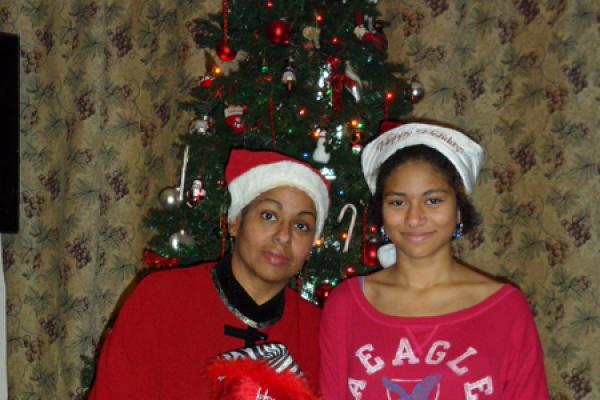Merry what? Just in time for Christmas, new statistics show “no religion is the new religion” in Great Britain, according to a study released Monday.
The study, by Westminster Faith Debates, finds 38 percent adults in Great Britain, and 48 percent of those ages 18 to 29, checked no religion in online surveys conducted in January and June by YouGov.
These numbers fall midway between the findings of two other British studies that both show a trend away from the pews.
We’ve created a Christmas monster: a grotesque assemblage of pagan, Christian and capitalist symbolism into something that resembles something we’re both attracted to and repulsed by at the same time. We’re fueled by an admixture of both guilt and greed, while the domestic economy pins its annual hopes on our propensity for spending far more than we have or want to spend.
All in the name of baby Jesus.
It seems that we have no means of escaping the vortex of materialism, partly because whoever is the first not to buy gifts is the cheap jerk who throws the whole transactional nature of gift-giving out of whack. But one Christmas, a few years back, my wife, Amy, and I had finally reached our limit. We were in the midst of our Financial Peace budget slim-down and Christmas spending was an obvious target.
A generation or two ago, when America’s Muslims were new immigrants who made up an even smaller minority of Americans than they do today, they viewed the lights, trees, carols, gifts, and festive spirit of Christmas as a threat to their children’s Islamic faith.
But these days, a growing number of Muslims celebrate Christmas, or at least partake in some ways, even if they don’t decorate their homes with trees and a light show. Indeed, many Muslim families have created their own Christmas traditions.
“I teach my three children, who attend public school and happen to be born into an interfaith Christian-Muslim family, that we absolutely do celebrate Christmas because we are Muslim,” Hannah Hawk of Houston wrote in an email. Rather than putting up a tree or lights, “we celebrate the reason for the season, Jesus, by studying all that is written about him in the Quran and by examining historical theories.”
I know. We’re all a little fatigued about the Duck Dynasty and freedom of speech controversy. As many have pointed out, everyone has been free during this controversy. Phil Robertson was free to make his statement to GQ. GQ was free to publish it. A&E was free to suspend Robertson for making comments that it thought hurt its image. And, despite that justification, A&E is free to air Duck Dynasty marathons on Dec. 24 and 25. (Yes, on Christmas Day you can watch 12 1/2 hours of Duck Dynasty. A&E is taking this controversy straight to the bank!) We are free to watch, or to not watch, future episodes of Duck Dynasty. We are all free to take sides. And bloggers are freely adding to our Duck Dynasty fatigue by writing endless blog posts.
This blogger asks for your forgiveness in writing yet another post that adds to our fatigue. So I’ll keep this brief.
There is something about freedom that we are missing in this debate, especially from a Christian point of view. When it comes to freedom, we want to fight for the freedom to do or say whatever we want. This is the highest point of freedom in the United States. It’s a freedom that is based on freedom for individual rights. It’s a freedom that says that I should have the right to say whatever I want without any negative consequences.
BETHLEHEM, West Bank — Two weeks before Christmas, one of the most powerful storms to hit the Middle East in a century dumped several inches of snow on the hills of Bethlehem.
In addition to shuttering schools and businesses, the storm caused runoff to trickle down the walls of the Church of the Nativity, built above the traditional birthplace of Jesus.
Fortunately, the water damage was relatively minor, church officials say, thanks to a rare cooperative venture already underway to repair the basilica’s roof, leaky windows and old wooden beams, some 1,500 years old.
“There were still leaks, but thanks to the scaffolding that was erected for the restoration work, the damage was controlled,” said the Rev. Pierbattista Pizzaballa, custodian of the Holy Land for the Roman Catholic Church.
In what some are calling the biggest miracle in Bethlehem since the birth of Jesus, the three churches that share responsibility for the Nativity church put aside centuries of tense relations this past year to ensure the job gets done.
Every year, a chorus of Christians join together to bemoan the “War on Christmas,” lambasting their enemies for taking Christ out of Christmas, and yearning for the days when everyone remembered the reason for the season.
But have we all forgotten? There has always been a war on Christmas. In fact, conflict lies at the very heart of Christmas. To those who say that Christmas is all about peace on earth, a quick look at the second chapter of Matthew and the largely overlooked story of King Herod reminds us that this peace comes at a price. For it is the kind of peace that can only come through conflict. Before caroling, there was weeping in Ramah.
It’s no surprise that most Christmas pageants leave out the Herod story. King Herod jealously guarded his power, killing anyone who got in his way. When he learns of Jesus’ birth, he declares the first war on Christmas. Herod doesn’t just want to kill Jesus. He wants to destroy him, taking Christ out of Christmas once and for all. When his efforts are thwarted, he resorts to genocide to ensure Jesus’ demise, murdering every male infant in Bethlehem. This, for Herod, is a bargain to rival any department store sale: The lives of Bethlehem’s youngest? A mere pittance for unrivaled power.
In other words, Herod gets it. Herod, more than anyone else in the story so far, sees this poor, refugee child for who he really is — a rival king.





